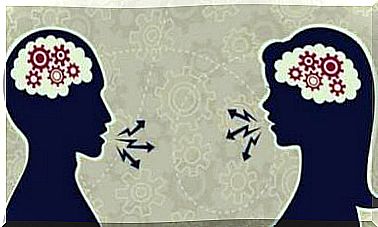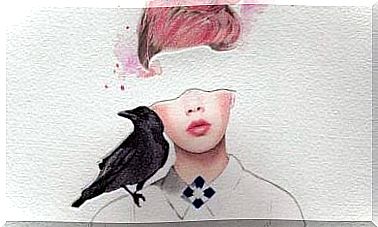Failed Predictions: Why We Are Unhappy

We are not happy because we tend to overestimate the impact that events will have in the future. It doesn’t matter if they are negative or positive. What matters is that this overestimation leads one to imagine a future situation, for example winning the lottery, causing an emotional reaction in the present. In practice, we find ourselves assuming that if this situation became a reality, we would try this. And this is precisely the origin of all our failed predictions.
We don’t realize that our emotional state changes. Let’s imagine winning the lottery but that, just a little later, a person dear to us dies and, therefore, we are sad. What we believed would fill us with happiness becomes a circumstance that we are unable to savor and enjoy. Trusting in our current emotional state to make assumptions about what will happen in the future leads us to have more failed predictions than correct ones.
Our failed predictions are based on the past
Just as we rely on our present emotional state to assume what can make us happy in the future, we also use another resource: the past. We collect memories about certain experiences to predict a future that, perhaps, does not correspond to our expectations. Failed forecasts are such, because they are loaded with expectations.

Let’s imagine, for example, that we haven’t had much luck with the colleagues we have had so far. We failed to build a good relationship with them, they tried to manipulate us, they always wanted to overwhelm us and put us in a bad light… Because of this, we can try to predict what will happen to us in a future job in two different ways.
If we have low self-esteem and our self-confidence has been damaged as a result of these experiences, we may think that the same will happen to us. We will go to work in fear, insecure and fearful of what we “believe” will happen. Otherwise, we will dream and want to find pleasant people with whom to establish a very positive relationship, probably not only from a work point of view, but also from a personal one.
Both one guess and the other will perhaps lead us to erroneous predictions. Since events are unpredictable. Sometimes we will be lucky enough to confirm our predictions and everything will turn out just as we had imagined. As a rule, hopefully everything will go well … but what if it doesn’t? What if what we believed would make us happy actually causes us sadness?
Emotions fade away
Our failed predictions aren’t just about our emotional state or our past experiences. We must also pay attention to another aspect. We usually only focus on the details that we consider important. For example, with work colleagues we focus only on the working relationship. But what happens with the work itself? What happens with regard to our growth in the workplace?

We set aside certain aspects, as our emotions in the present push us to focus on something that harms us and that we wish to change. Not being rich, not having pleasant co-workers, not having been able to have a child yet… All of this leads us to believe that winning the lottery, having fantastic co-workers or having a child will make us happy. What if, on the other hand, it doesn’t turn out to be so?
Sometimes we can make hasty decisions, based on predictions that may not happen as we have imagined them and as we hoped. Something we thought would make us happy suddenly proves not to be. However, it is too late to back down.
We need to be aware that emotions fade away. Winning the lottery can make us happy but this emotion won’t last. We will always have bad moments, experiences that will make us sad and overestimating this event can even lead us to act without caution and find ourselves, suddenly, full of doubts.

We will all have made predictions that turned out to be a failure. Understanding that these are conditioned by our current preferences and the fact that we underestimate the way we will feel, that it will not be permanent, will help us to live more in the present moment and to accept what will happen without too many expectations.









